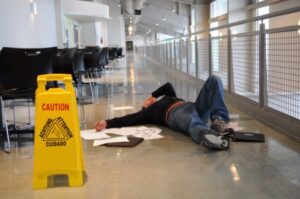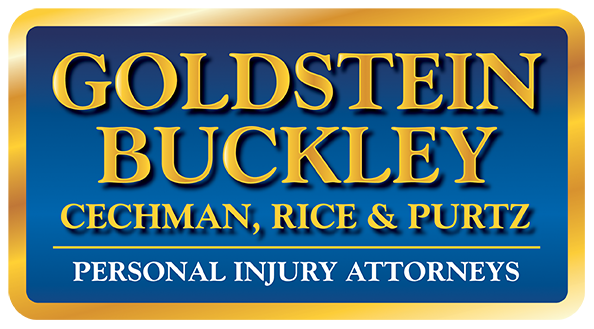Slip and fall accidents are quite common in Florida, especially in commercial establishments such as grocery stores, shopping malls, and restaurants. In these cases, the property owner or the business operator may be held responsible for the injuries sustained by the victim. However, the property owner or operator may use various defenses to avoid liability or reduce their damages. In this blog post, we will discuss some common defenses used in Florida slip and fall accident cases.
Comparative negligence
One of the most common defenses used in Florida slip-and-fall accident cases is comparative negligence. Comparative negligence is a legal principle that allows the court to allocate fault between the plaintiff (victim) and the defendant (property owner or operator). If the plaintiff is found to be partially at fault for the accident, their damages may be reduced by the percentage of fault assigned to them. For example, if the plaintiff is found to be 20% at fault, their damages may be reduced by 20%.
The open and obvious danger
Another common defense in slip and fall accident cases is the open and obvious danger defense. This defense asserts that the danger that caused the accident was open and obvious to the plaintiff, and they should have been aware of it. If the danger was open and obvious, the property owner or operator may not be held liable for the plaintiff’s injuries. For instance, if there was a wet floor sign in a visibly wet area, and the plaintiff slipped and fell, the property owner may argue that the danger was open and obvious, and the plaintiff should have taken more care.
Lack of notice
The lack of notice defense is based on the idea that the property owner or operator did not have sufficient notice of the hazard that caused the accident. If the hazard was not present long enough for the property owner to discover and remedy it, they may not be held liable for the plaintiff’s injuries. For example, if a customer spilled a drink in a grocery store aisle, and another customer slipped and fell seconds later, the property owner may argue that they did not have enough time to discover and clean up the spill before the accident occurred.
Assumption of risk
The assumption of risk defense asserts that the plaintiff knowingly and voluntarily assumed the risk of injury by engaging in a potentially hazardous activity. If the plaintiff assumed the risk, the property owner may not be held liable for their injuries. For example, if a customer climbs on a store shelf to reach a product and falls, the property owner may argue that the customer assumed the risk of injury by climbing on the shelf.
Lack of causation
The lack of causation defense argues that the defendant’s actions or omissions did not cause the plaintiff’s injuries. For instance, if the plaintiff slipped and fell because they were running in the store, the property owner may argue that their actions caused the accident, not the condition of the floor.
Statute of limitations
The statute of limitations is a time limit that restricts the period in which a plaintiff can file a lawsuit against the defendant. In Florida, the statute of limitations for personal injury cases, including slip and fall accidents, is generally four years from the date of the accident. If the plaintiff fails to file their lawsuit within this time frame, they may be barred from recovering damages.
Immunity
Certain entities, such as government agencies, may be immune from liability in slip-and-fall accident cases. For example, if a person slips and falls on a sidewalk maintained by a government entity, the government may argue that they are immune from liability under the doctrine of sovereign immunity.
Pre-existing condition
If the plaintiff had a pre-existing medical condition or injury that contributed to their injuries, the defendant may argue that they should not be held liable for the plaintiff’s damages. For example, if a person with a history of back problems slips and falls, the defendant may argue that the plaintiff’s pre-existing condition contributed to their injuries.
Intervening cause
An intervening cause is an event or action that occurs between the defendant’s alleged negligence and the plaintiff’s injury. If an intervening cause contributed to the plaintiff’s injuries, the defendant may argue that they should not be held liable. For example, if a customer slips and falls on a wet floor, but then gets hit by a falling object while on the ground, the defendant may argue that the falling object was an intervening cause of the plaintiff’s injuries.
It is important to note that these defenses do not always absolve the defendant of liability in slip and fall accident cases. An experienced personal injury attorney can evaluate the facts of your case and help you understand your legal options. If you have been injured in a slip and fall accident, it is important to seek medical attention and document the details of the accident as soon as possible.
Goldstein, Buckley, Cechman, Rice & Purtz, P.A is a personal injury law firm with decades of experience handling slip and fall accident cases in Florida. Our attorneys understand the common defenses used by property owners and operators in these cases, and we have the knowledge and resources necessary to help you navigate the legal process and protect your rights.
- Here are some of the ways we can help with common defenses used in Florida slip and fall accident cases:
- Investigating the accident: Our attorneys can conduct a thorough investigation of the accident to gather evidence that supports your claim. This may include reviewing surveillance footage, interviewing witnesses, and inspecting the scene of the accident.
- Assessing the property owner’s liability: We can evaluate the property owner’s liability based on their duty of care to keep their premises reasonably safe and free from hazards. We can also assess the effectiveness of the defenses they may use to avoid liability
- Proving damages: We can help you gather evidence to prove the extent of your damages, such as medical bills, lost wages, and pain and suffering.
- Negotiating with insurance companies: We can negotiate with the insurance company on your behalf to secure a fair settlement that covers your damages.
- Representing you in court: If necessary, we can represent you in court and advocate for your rights to recover the compensation you deserve.
At Goldstein, Buckley, Cechman, Rice & Purtz, P.A, we understand that slip and fall accidents can have a significant impact on your life, and we are committed to providing compassionate and effective legal representation. Contact us today to schedule a free consultation with one of our experienced personal injury attorneys.
